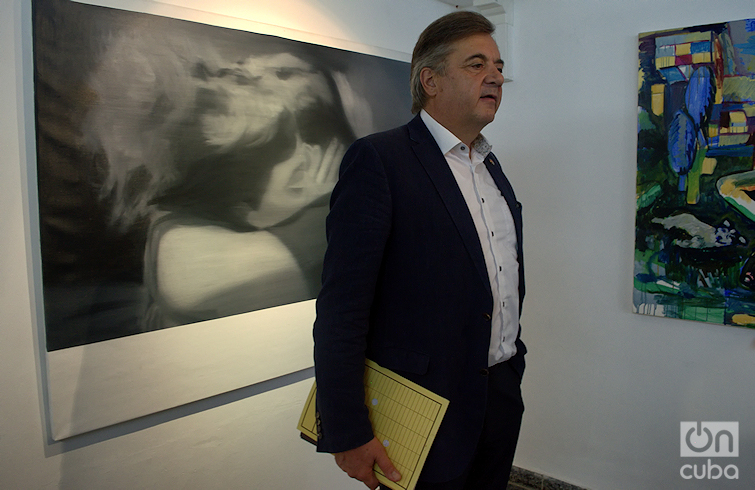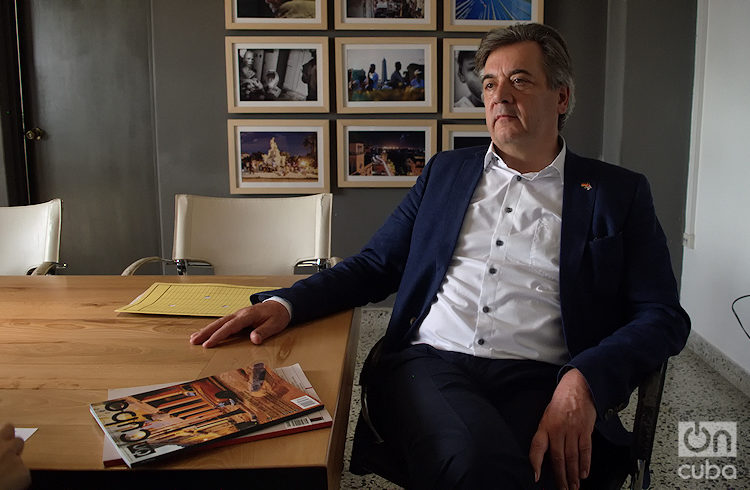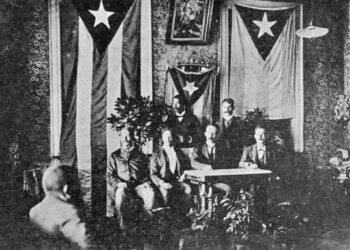Germany is not only the driving force behind Europe’s economy. It is also an actor with a great political influence in the community bloc and in the global context. Its ties with Cuba have gone through different stages and, although they have grown in recent years, its ambassador in Havana, Thomas Karl Neisinger, recognizes that “there’s still a lot to do.”
At a time when Cuba and the European Union (EU) are living a new stage in their relations, after the signing of a bilateral agreement and the visit to the island by Federica Mogherini and other European government figures, Germany hopes to strengthen its ties with the island, as part of the regional bloc as well as independently.
OnCuba spoke with Mr. Neisinger about bilateral relations and their perspectives, among other issues.
At what point are relations between Cuba and Germany?
A few years ago relations between Cuba and Europe were not at their best moment and Germany was interested in changing that situation. An important moment to achieve this was the visit to Havana of then Foreign Minister – and now Federal President – Frank-Walter Steinmeier, in July 2015. At the time a moderate cooperation document was signed, but it was important as a sign of goodwill. Since the renewal of diplomatic bilateral ties in 1974, we have had relations, with some political ups and downs, but always functional from the cultural, economic and cooperation point of view in general. Undoubtedly the visit by Steinmeier was a special point for the two countries.
Starting then the interest of German companies, artists, from all sectors of German society to approach Cuba to collaborate, has increased twofold, threefold, fourfold. We had a wave of visits in recent years as a result of that interest, and that represented, for example, an increase in the number of German tourists: in 2014 there were 140,000, which at the time was a rather high number, and in 2016 they were already 250,000, that is to say a 70 percent increase. We still don’t have the statistics for 2017, but that year the International Tourism Fair, in Holguín, was dedicated to Germany, which is illustrative. We hope that relations continue advancing, on a bilateral as well as EU level.
In what areas is there work in bilateral cooperation?
Already since 2015 and then in 2016, with the visit to Cuba by Minister of Economy Sigmar Gabriel, Germany confirmed the interest in accompanying Cuba in the entire process of reforms, especially the economic ones, although these also have their political and social repercussion. We have the will and the availability to do so, in the state sphere as well as the private sector. For some time we have been working in areas like energy, agriculture and environmental protection, and we believe that there exists in Germany an experience that can be very useful for the future of Cuba.
We have already been carrying forward a process of experience, opinion sharing, between the Ministry of Finances and Prices and our Ministry of the Treasury, on economic and monetary issues. I believe that it is a very fruitful collaboration between experts, in which they don’t speak of politics but rather of how to adapt the economic system and that of the two currencies. We had our own experiences during the German unification process, and they can be of interest to Cuba.
In general, German industry’s interest in Cuba has been tremendous; although there is no doubt that there is still a lot to do on both sides. Taking into account that Cuban participation in German exports is at 0.1 percent, there’s a margin to work much more; and not only in terms of German exports, investments and cooperation, but also possible Cuban exports to Germany.

What could be done to advance more in this direction?
I hope there can be more joint ventures, also seen as development aid, and that there can be greater cooperation. We still don’t have a framework cooperation agreement, about which we presented a proposal more than two years ago. There are going to be other talks and negotiations in April in Berlin and we hope that the agreement to facilitate cooperation and increase relations will be concretized.
Not all the German companies equally understand the Cuban economic system and its mechanisms, the specificities of Cuba as a market, because our systems are different. On the other hand, we think that the Cuban side must work to overcome the existing obstacles and promote the investment that Cuba needs as a country with little resources, to advance economically as well as socially. It is not possible that an investment project of a German company interested in being in Cuba take three years, already set, and there still isn’t a decision. In a world like the current one waiting so much to start the process, which in addition should also be long, it is not encouraging or economically profitable.
And beyond the economic front?
During his visit to Cuba President Obama said the correct words about the road Cuba should take: this is a sovereign decision of the Cubans. Germany has a sociopolitical system different from that of Cuba’s, which the majority of the Germans identify with. It is a model we like to promote, but without interfering in other countries. No model can be mechanically transferred.
I believe the achievements of the Cuban Revolution cannot be underestimated. The transformations being carried in Cuba form part of a very difficult process of adaptation to the current realities, in which those social achievements, which are an example for many of the region’s countries, must be maintained. But we also think that there could be a greater democratic participation in the future. That is our point of view, but in the end this is a Cuban process, carried out by the Cubans, and it should continue being like that.
How does Germany assess the rollback in relations between Cuba and the United States?
We saw the opening carried out by presidents Raúl Castro and Barack Obama in December 2014 as a positive move. We thought it was the necessary, correct step to end the Cold War years. Now we are observing very closely the Cuba policy of the government of President Donald Trump. But we prefer to say directly to the representatives of the U.S. government our considerations about this and other subjects, as the allies and friends we are.
What is Germany’s position about the current rapprochement between the EU and Cuba?
We think it is necessary. It has been a long decision-making process in the EU, and also in Germany, to define what to include in the bilateral agreement, what would be the bloc’s position about the different topics. We held exchanges with that intention with the other European countries. As director of Latin American affairs in the German Foreign Ministry I was very close to this process. We were interested, for example, that certain subjects not be left out, like those of human rights, the participation, in addition to cooperation, logically. Finally we gave the green light to the project on our part and a joint proposal was reached in 2014 to start the negotiations.
Germany was one of the countries that finished the fastest its internal ratification processes, and we would like the EU agreement with Cuba to be the start of a process of continuous dialogue about issues of interest to both parties.
We hope that in the first bilateral summit, which will be held soon, a more concrete picture of what is wanted and can be done in bilateral matters can already come out, not just from the economic point of view but also on issues like human rights; that each party explain their considerations, their points of view, and that we be able to talk and understand each other openly, based on out coincidences and also our differences and respecting each other. I believe that is the only road to have effective relations.









